Jennifer Jones won the Best Actress Oscar for the spiritual fact-based tale, The Song of Bernadette, a tribute to the values of faith, miracle, and innocence, as manifest in the life of the titular French saint.
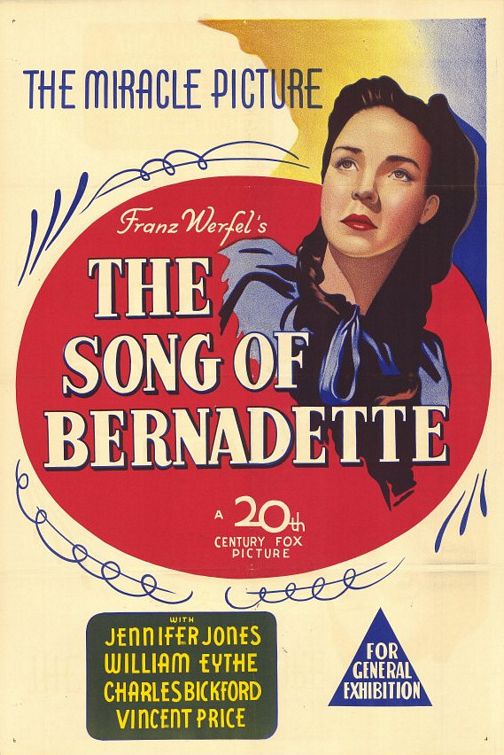
The film is nicely directed by Henry King from a screenplay by George Seaton, based on the highly popular 1942 novel by Franz Werfel, which was for weeks on the New York Times Best Seller List.
The tale centers on Bernadette Soubirous, a peasant girl who claimed to have a vision of the Virgin Mary in a grotto at Lourdes in 1858. Over a period of five months, February to July, Berndette claims to have had no less than 18 visions of the Blessed Virgin Mary.
This was her first major screen role of Jennifer Jones, who plays the simple, ordinary girl, whose family lives in the town prison because they do not own a home of their own.
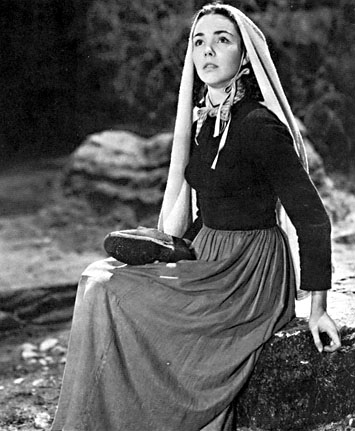
One day, while gathering sticks of wood near the grotto, she is visited by the Virgin (played by the dark-haired beauty Linda Darnell). At the grotto she digs for healing waters, which possess magical curative powers the weak and sickly.
At first, no one believes Bernadette’s story—except for her kind mother (Anne Revere), who knows that her girl is simply incapable of lying. Indeed, there is much controversy, animosity, and resentment in her village (and the church). But eventually, following the steps of the local priest Peyremaie (Charles Bickford), who helps her get into the convent, the town’s folks begin to change their mind.
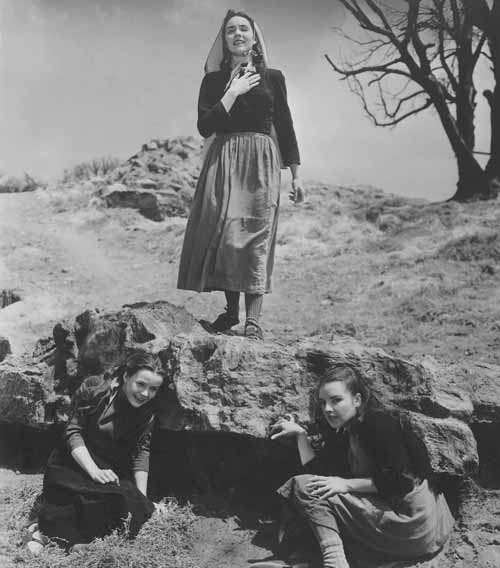
After decades of stubbornly defending her version, Bernadette is canonized by the Catholic Church. As a result, the place becomes a famous touristy spot for people who visit the site in order to bathe in the holy water.
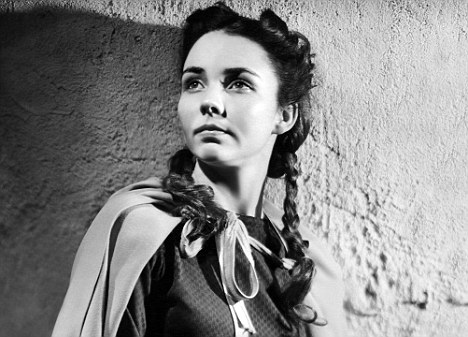
This Fox prestige movie benefits from good acting of the entire ensemble and polished production values, especially cinematography by Arthur Miller. The music by Alfred Newman, who won the Best Score, provides an almost-spiritual accompaniment to the tale, which has many emotionally stirring moments.
However, the running time of 156 minutes is excessive and was criticized by the time by many reviewers.
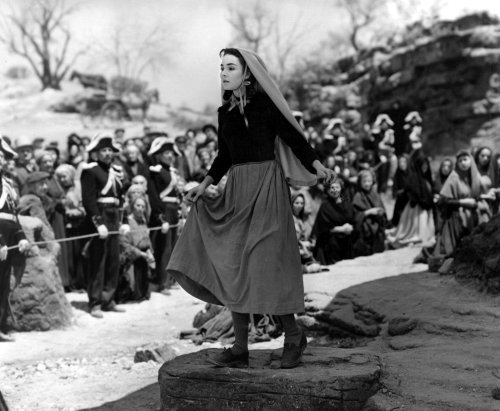
Charles Bickford, who received a Supporting Actor nomination, excels as the Catholic dean of Lourdes who champion the guileless maiden when he perceives her unshakeable sincerity
Cast
Bernadette Soubirous (Jennifer Jones)
Antoine (William Eythe)
Louise Soubirous (Anne Revere)
Sister Vauzous (Gladys Cooper)
Peyremie (Charles Bickford)
Dutour (Vincent Price)
Dr. Dozous (Lee J. Cobb)
Francois Soubirous (Roman Bohnen)
Jeanne Abadie (Mary Anderson)
Empress Eugenie (Patricia Morison)
Oscar Alert
Oscar Nominations: 12
Picture, produced by William Perlberg
Director: Henry King
Screenplay: George Seaton, based on the novel by Franz Werfel.
Actress: Jennifer Jones
Supporting Actress: Anne Revere
Supporting Actress: Gladys Cooper
Supporting Actor: Charles Bickford
Interior Decoration (b/w): James Bsevi and William Darling, art direction; Thomas Little set decoration
Cinematography (b/w): Arthur Miller
Editing: Barbara McLean
Scoring: Alfred Newman
Sound Recording: E.H. Hansen
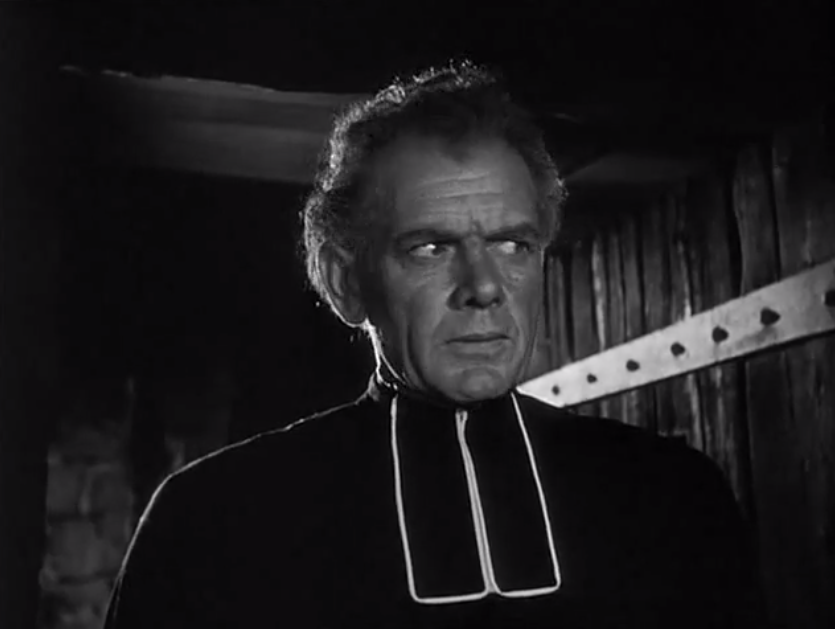 Photo: Charles Bickford
Photo: Charles BickfordOscar Awards: 4
Actress
Cinematography
Interior Decoration
Scoring
Oscar Context
This was the last year, in which ten films were nominated for Best Picture. In 1944, the top category was standardized to include five nominees (as in most categories).
In 1943, “The Song of Bernadette” competed for the Best Picture Oscar with “Casablanca” (which won), “For Whom the Bell Tolls,” “Heaven Can Wait,” “The Human Comedy,” “In Which We Serve,” “Madame Curie,” “The More the Merrier,” “The Ox-Bow Incident,” ” and “Watch on the Rhine.”
The most nominated films were “The Song of Bernadette” (12), followed by “For Whom the Bell Tolls” (9).
Charles Coburn won the Supporting Actor for “The More the Merrier.” Gladys Cooper and Anne Revere lost the Supporting Actress to Katina Paxinou for “For Whom the Bell Tolls.”
The Editing Oscar went to George Amy for “Air Force,” and the Sound award to Stephen Dunn for “This Land Is Mine.”










